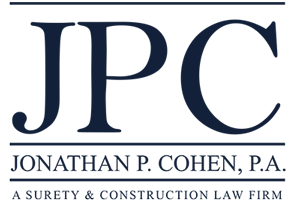The information provided in this article does not, and is not intended to, constitute legal advice.
The content in this article is available for general informational purposes only.
When a contractor is not paid for his or her work, he or she can file a lien against the property improved. Liening property is a powerful remedy to secure payments owed. A lien will prevent the owner from selling the property without first satisfying the lien forcing the owner to deal with the unpaid contractor. Florida construction lawyer Jonathan P. Cohen helps contractors, subcontractors, suppliers and design professionals lien properties to compel payment.
What Property Is Lienable?
Liens attach to privately owned real property that has been improved through the incorporation of the materials, labor, or services into the project. However, design professionals are treated differently. Those design professionals who contract directly with the property owner can lien the property for their services even if the property owner does not make any improvements. Lienors have up to 90 days following the final finishing of labor, services or materials to file a claim of lien, after which time the right to lien will be lost. The lienor then has one year to foreclose on the claim of lien by filing a lien enforcement action. Individuals eligible to lien a property are contractors, subcontractors, sub-subcontractors, laborers, materialmen, and professional lienors (architects, engineers etc.)
However, the right to lien is sometimes replaced through other means of securing payment. On larger private projects, owners typically require a payment bond from its contractors to protect the property from liens. Where an unpaid contractor files a lien on a bonded project, the owner will transfer the lien to the bond and the contractor will be forced to seek payment against the bond and not the property. The payment bond is typically furnished before work commences and must be attached to the notice of commencement to put the world on notice that the project is bonded and to look to the bond for payment. Similarly, on public projects, those owned by the state, county, city or other political subdivision, the property is exempt from liens. So what does an unpaid subcontractor do on a public project? Florida law requires the contractor in privity with the governmental entity (in privity means having a direct contract with the governmental entity) furnish a payment bond. This keeps the property free of liens yet provides recourse for unpaid contractors and others working on the project.
Get Help from an Experienced Florida Construction Lawyer
Property liens can help unpaid contractors and other eligible lienors secure payment for labor, services, or materials. A Florida lien lawyer at the law firm of Jonathan P. Cohen, P.A. can help you file a lien to protect your right to payment. Florida lien lawyer Jonathan P. Cohen has more than eight years of experience representing people and businesses within the construction industry. Contact us today to schedule a consultation by calling us at (954) 462-8850.

